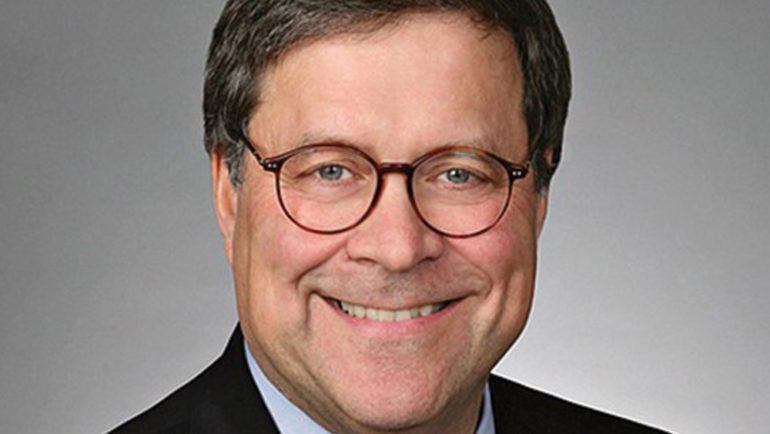Trump’s Attorney General Pick Questioned DOJ’s ‘Motivation’ in Opposing AT&T-Time Warner Merger
By Ted Johnson
LOS ANGELES (Variety.com) – WASHINGTON — William Barr, Donald Trump’s choice for the next attorney general, earlier this year questioned whether the Antitrust Division’s motivation for attempting to block the merger of AT&T and Time Warner was political.
Barr, who served as attorney general under George H.W. Bush, has been a member of the Time Warner board of directors. Time Warner was renamed WarnerMedia after the merger was completed in June.
In February, just as the antitrust case was being readied for trial, Barr gave a sworn declaration about a key meeting held between Time Warner executives and Justice Department officials in November 2017, just before the DOJ sued to block the deal. Barr’s account of the meeting conflicted with that of Makan Delrahim, who is in charge of the Justice Department’s Antitrust Division.
In his own affidavit, Delrahim said that at the meeting, Time Warner general counsel Paul Cappuccio got up from his seat at a conference table “and said that if the Antitrust Division goes through with this, the case will be ‘a s—show like you’ve never seen,’ and that it would be like ‘Jimmy Hoffa and the firing of Jim Comey.”
Andrew Finch, the deputy assistant attorney general for the Antitrust Division, also filed a sworn declaration describing the same details of the meeting.
Barr was also at the meeting. He happened to be at the Justice Department that day for the announcement of a new fellowship program, and Delrahim said he asked to attend the meeting. Delrahim agreed.
Delrahim said in his affidavit that Barr showed discomfort over Cappuccio’s comments.
In his affidavit, Barr provides a different account of what was said, characterizing Delrahim and Finch’s version of events as “incorrect.”
“Mr. Cappuccio did not stand up and wag his finger at Mr. Delrahim and I do not recall any references to either James Comey or Jimmy Hoffa. No reasonable person could have attributed Mr. Cappuccio’s comments as a threat that the companies would personally attack Mr. Delrahim or anyone else in the event of litigation,” Barr said.
He also said the discomfort he felt at the meeting was not over what Cappuccio said, but “was the result of my concern that Mr. Delrahim’s position that the alleged harms from this merger and his inexplicable ipse dixit rejection of remedies short of extreme divestitures were the product not of a well-versed substantive analysis, but rather political or other motivation. As a former Attorney General, that is disturbing to me.”
Before the trial, AT&T and Time Warner sought documents on whether the White House played a role in the decision to try to block the merger, given Trump’s animosity toward Time Warner unit CNN. But U.S. District Judge Richard Leon rejected that line of discovery, and Delrahim denied in his declaration that the White House influenced the decision to sue.
“My consideration of this transaction took no account of the views of anyone else (including then-candidate or President Trump or anyone at the White House) as to CNN’s editorial content or exercise of First Amendment rights. Those were not factors that played any role in my consideration ofthe Transaction and any suggestions to the contrary are false,” Delrahim said in his declaration.
In his declaration, Barr said that given Trump’s animus toward CNN, Delrahim’s prior statements about the merger and other factors, “many would understandably question whether the [Antitrust Division] had a genuine basis for bringing this enforcement action or instead was acting to serve a political end. I agreed with that view and I agree with it now.”
Leon ended up ruling in favor of AT&T, but the Justice Department appealed. A three-judge appellate panel heard oral arguments in the case on Thursday.
If he is confirmed, Barr likely would have to recuse himself on anything related to his past business relationships, “consistent with past DOJ ethics policies,” according to Gene Kimmelman, the president and CEO of public interest group Public Knowledge. He is a former senior adviser in the Antitrust Division.

